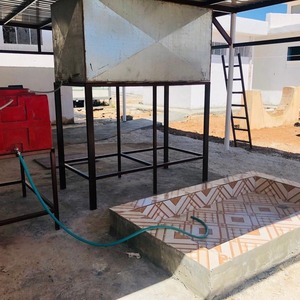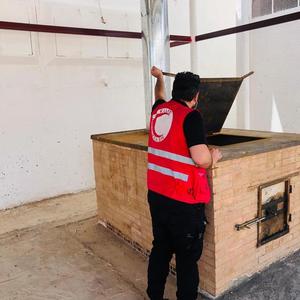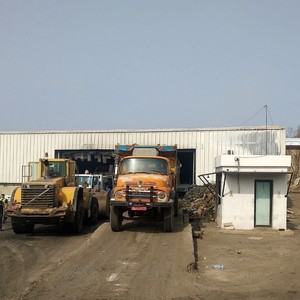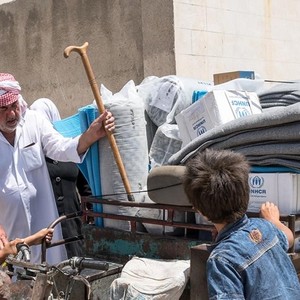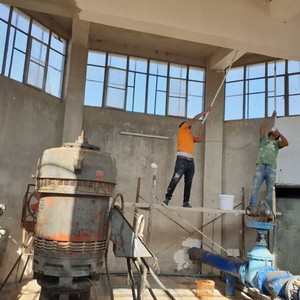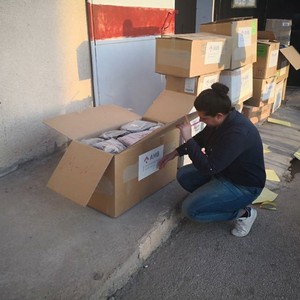Action against COVID-19
| Subject: International Relations
Emergency healthcare waste treatment plant to avoid infection in Syria
The AMB, in cooperation with the Kurdish Red Crescent and the NGO Un Ponte Per (UPP), has built, in record time, an emergency healthcare waste management plant in Syria's referral hospital for patients with COVID-19. It is a key element to avoid the spread of the pandemic in the region.
With the new medical waste plant, infectious waste may be disposed of in accordance with the WHO guidelines. A management system has therefore been implemented in situ to stop healthcare waste from being taken to the municipal waste treatment plant that was built in 2019.
The objective of the new healthcare waste management system is to prevent people from becoming infected through the municipal waste treatment system. The plant was operational within just 19 days of the building application being filed. This quick response was possible thanks to the last-minute modification of a project intended to improve healthcare management systems at health centres, which the AMB, Kurdish Red Crescent and UPP were due to carry out in northeast Syria.
This action is part of a project aimed at improving the manner in which healthcare waste is managed at health centres throughout the region.
The AMB in Syria
Syria is one of the countries in which the AMB has focused its international cooperation efforts in recent years.
In addition to the healthcare waste management project, it is also involved in two other ongoing projects. On the one hand, the AMB is providing technical and economic support to the city of Qamishli in its bid to install solar-powered street lights. On the other, the project to deliver humanitarian aid following the Turkish invasion of northern Syria last October is now in its final phase. Both interventions have been carried out in cooperation with the Kurdish Red Crescent, which works with local governments throughout the region.
Prior to 2017, the AMB also helped restore the drinking water station in Kobane, as part of a healthcare waste management project that preceded the one currently being implemented, and took part in four projects to protect the population and deliver humanitarian supplies to the area around Aleppo. In addition to this, the AMB also funded a project as part of the 2018-2019 call for international cooperation grants.
Pandemic and conflict
The number of cases of COVID-19 in northeast Syria is steadily increasing, although the actual number of infections is unknown due to the lack of tests that would help gauge it. The first death from COVID-19 was confirmed on 2 April, and, prior to 7 May, there were a total of 6 confirmed cases. Nonetheless, all indications suggest that the actual number of cases is much higher.
In conflict areas, drinking water and hygiene products are becoming even more essential than they already are: hand washing and good hygiene practices may be the only protection against COVID-19.
At present, the Ras al-Ain water pumping station supplies drinking water to more than 460,000 people in the country's Al-Hasakah Governorate. However, since last October, it has been in the hands of the Turkish army and jihadi militias. Cuts in the water supply have therefore emerged as a weapon of war that puts the civil population at serious risk.
In this regard, UN agencies and international organisations have repeatedly demanded not to use water for military or political gain. These demands, however, continue to fall on deaf ears, despite the spread of the pandemic in the region.













































